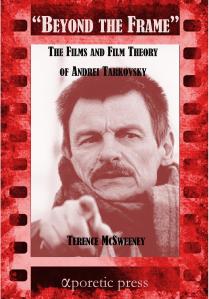Currently seeking abstract submissions for inclusion in the following proposed collection:
Damned Facts: Fortean Approaches to the Study of Religion
Edited by Jack Hunter
(Doctoral Candidate, Dept. Archaeology & Anthropology, University of Bristol)
Overview:
Over the course of four intriguing books (The Book of the Damned (1919), New Lands (1925), Lo! (1931), and Wild Talents (1932)), Charles Hoy Fort meticulously collected hundreds of accounts of anomalous events documented in scientific journals and newspapers, including such unusual occurrences as fish falling from the sky, poltergeists, unidentified flying objects, levitations, mysterious objects, disappearances, ball lightning, and so on. Throughout all of his works, Fort employed the philosophy of intermediatism: “that nothing is real, but that nothing is unreal: that all phenomena are approximations in one way between realness and unrealness.” Through this rigorously agnostic epistemology Fort was able to explore some exceedingly strange territory, unearthing phenomena (what he called “damned facts”), that mainstream science had rejected outright, and in so doing inspired others to employ a similarly Fortean approach in their own writings. This collection draws together scholars who have taken a Fortean approach to the study of religion, itself a category filled with a wide range of weird and anomalous accounts: from miracles, encounters with supernatural beings, and self-mortification, to stigmata, spirit possession and mystical experience.
Some possible themes:
Submissions of abstracts on areas related to the following would be greatly appreciated:
- Fortean approaches to religion.
- The paranormal in the context of religion and religious studies.
- Explorations of implications of Fortean/paranormal phenomena for the study of religion
- Relating Fortean concepts to theory, theology, etc.
- Examinations of the relevance of other Fortean writers, e.g. John Keel, John Michell, Colin Wilson, Jacques Vallee, etc. to the study of religion.
- Intermediatism
- Extraordinary religious phenomena (stigmata, spirit possession, magic, shamanism, visions, altered states of consciousness etc.)
These are just a few ideas, and I would be more than happy to hear other thoughts or suggestions for possible chapters that would fit within the general theme of the book.
I can be contacted via, if you have any ideas or questions please don’t hesitate to get in touch: discarnates@googlemail.com
Deadline for Abstract Submissions and Expressions of Interest: June 15th 2015.
The book is currently under consideration by Aporetic Press (https://aporeticpress.wordpress.com/about/)
Bio: Jack Hunter is a doctoral candidate in the Department of Archaeology and Anthropology at the University of Bristol. His research takes the form of an ethnographic study of contemporary trance and physical mediumship in Bristol, focusing on themes of personhood, performance, altered states of consciousness and anomalous experience. In 2010 he established Paranthropology: Journal of Anthropological Approaches to the Paranormal, as a means to promote an interdisciplinary dialogue on issues relating to paranormal beliefs, experiences and phenomena. He is the editor ofParanthropology: Anthropological Approaches to the Paranormal (2012) and Strange Dimensions: A Paranthropology Anthology (2015, forthcoming), both of which gather some of the best articles from the first four years of the journal. He is the author of Why People Believe in Spirits, Gods and Magic(2012), a beginner’s introduction to the anthropology of the supernatural, and co-editor with Dr. David Luke of Talking With the Spirits: Ethnographies from Between the Worlds (2014).
 .
.




